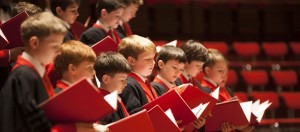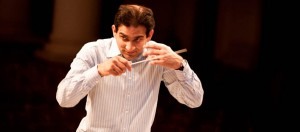An Interview with John Clapham of the Choir of St. John’s College, Cambridge

St. Johns College
The choir has a very busy daily schedule of performing Choral Evensong six days a week plus a morning service on Sundays. Because of the schedule, it’s difficult to be both a scholar and a chorister. John mentioned that the school will not permit those studying medicine to be in the choir, but the science majors can join but have to squeeze their labs in between rehearsals. The amount of music that the choir performs is a perfect setup for their life in the musical world after graduation: they’ve already seen and sung most everything!

Choir
Tomkins: When David Heard (Choir of St. John’s College, Cambridge, Andrew Nethsingha, cond.)
One of the important modern parts of the repertoire has come from the commissioning of new works. John indicated that it was helpful for the choir to be able to have sessions with the composers. He said that so many new techniques were being called for that he found the modern notation couldn’t keep up with the composers’ imaginations. The interaction between the choir and the composer was an important part of creating the première of a new work.

Andrew Nethsingha
Vaughan Williams: O Taste and See (Choir of St. John’s College, Cambridge, Andrew Nethsingha, cond.)
One of the encore pieces was the Chinese song ‘Mo Li Hua’ (Jasmine Flower), which had been arranged specifically for the choir by John. The choir had been encouraged to find something local for their Asian concert tour and this work, a Chinese folk-song from the 18th century, was a surprise hit. As a graduate of the College, John said that he now had time to learn new things, such as composition and arranging, that he hadn’t had time to pursue when he was a full-time student and he was grateful for the chance to apply them to this song.
The Asian tour of the Choir was a complete success and it was an opportunity for one of the truly great choirs of England to come back to Asia. John mentioned that their last appearance in Asia was a Japanese tour in the early 2000s and it had been over 20 years since they’d come to Hong Kong. All we ask is that they come back to Asia again, SOON!
Official Website




